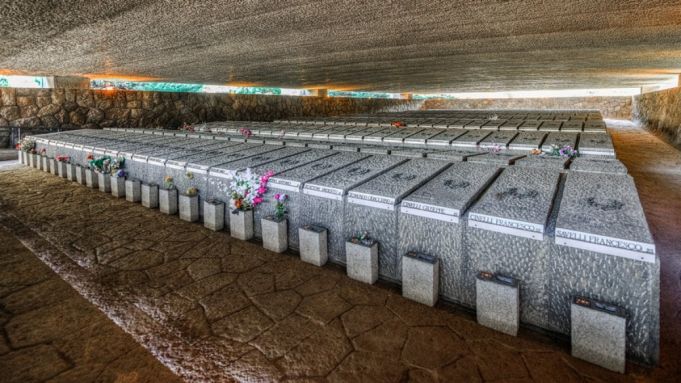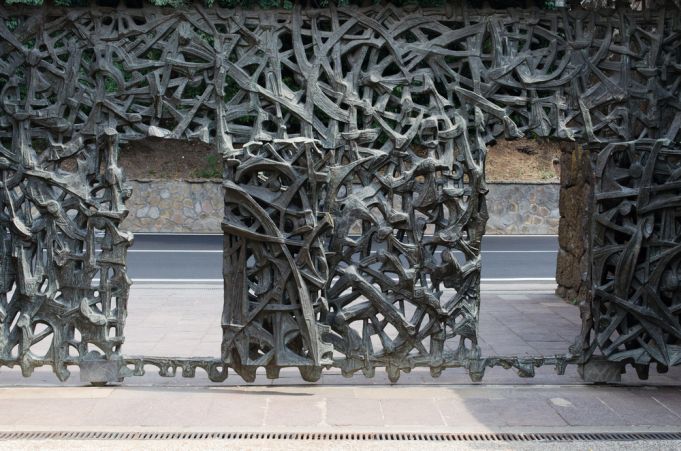Rome commemorates victims of 1944 massacre.
Italy's president Sergio Mattarella on Monday will commemorate the 335 victims of the Fosse Ardeatine massacre, 81 years after the mass killing took place in Rome.
On 24 March 1944 the Nazi forces then occupying the Italian capital carried out one of the most horrific atrocities against civilians during the second world war in Italy.
The Fosse Ardeatine, a former quarry near Via Appia Antica, was chosen as the site for the massacre of 335 people, in retaliation for a partisan attack on a column of marching German military police the day before.
Via Rasella attack
In a strike against the German forces occupying the city, Italian resistance fighters detonated a homemade bomb in a rubbish cart on Via Rasella, near Piazza Barberini, targeting a column of Bozen military police attached to the SS en route from Piazza del Popolo to its quarters in the Viminale, just off Via Nazionale.
The bomb was ignited when the patrol turned into the narrow, steep street that runs parallel to Via del Tritone, between the Traforo and Palazzo Barberini, just a short walk from the Trevi Fountain.
Out of the 156 men in the German unit, 28 were killed instantly, rising to 32 the next day and subsequently to 42.
Hitler
The SS command in Rome under Herbert Kappler immediately recommended reprisals, which were swiftly approved by the military authorities all the way up to Hitler.
Within 24 hours the German command ordered the Ardeatine massacre. The response was rapid and brutal, without the usual posting of notices offering to forgo reprisals if the bombers should give themselves up.
Innocent victims
Hundreds of innocent victims were rounded up immediately from Regina Coeli prison, from their homes and off the street in an attempt to reach a ten to one ratio for every German killed in the Via Rasella bombing.
They included professionals, military men, factory workers, a Catholic priest and several students. 75 of them were members of Rome's Jewish community.
They were of all ages from 15 to 70, and all political persuasions, from monarchist army officers to ultra-left wing communists. Some of them came from outside Rome.
On 24 March the 335 victims were taken in lorries outside the city by SS officers Erich Preibke and Karl Hass, divided into groups of five and shot in the back of the head.
When the officers discovered that, by mistake, five too many hostages had been rounded up, they decided to kill them anyway so that word of the massacre should not spread too soon.
The Fosse Ardeatine caves were then dynamited to seal them off and the bodies left to decay. It was not until more than a year later, after the Allied Liberation of Rome on 4 June 1944, that the caves were reopened and the bodies found.
Horrible sacrifice

Erich Priebke

Mausoleo Fosse Ardeatine
Ceremonies to mark 81st anniversary of massacre
General Info
View on Map
Italy remembers the Fosse Ardeatine massacre
00147 Rome, Metropolitan City of Rome, Italy

















